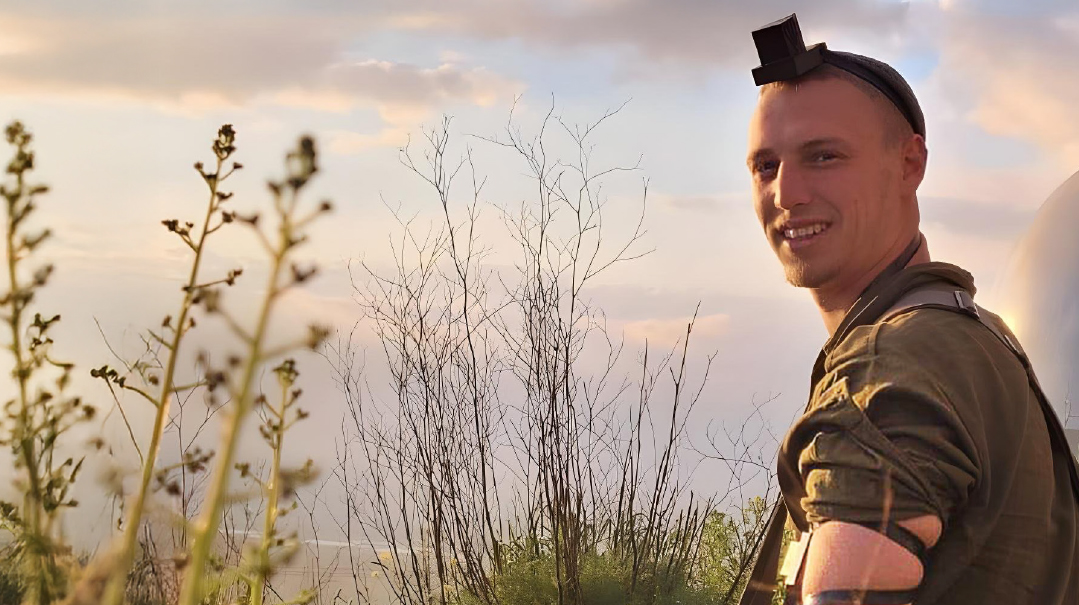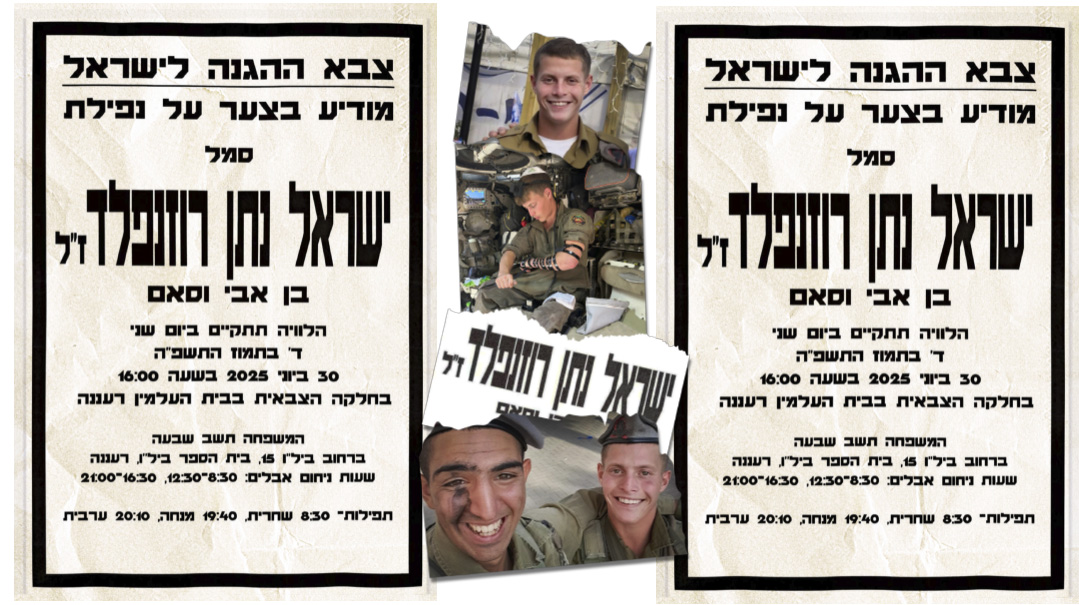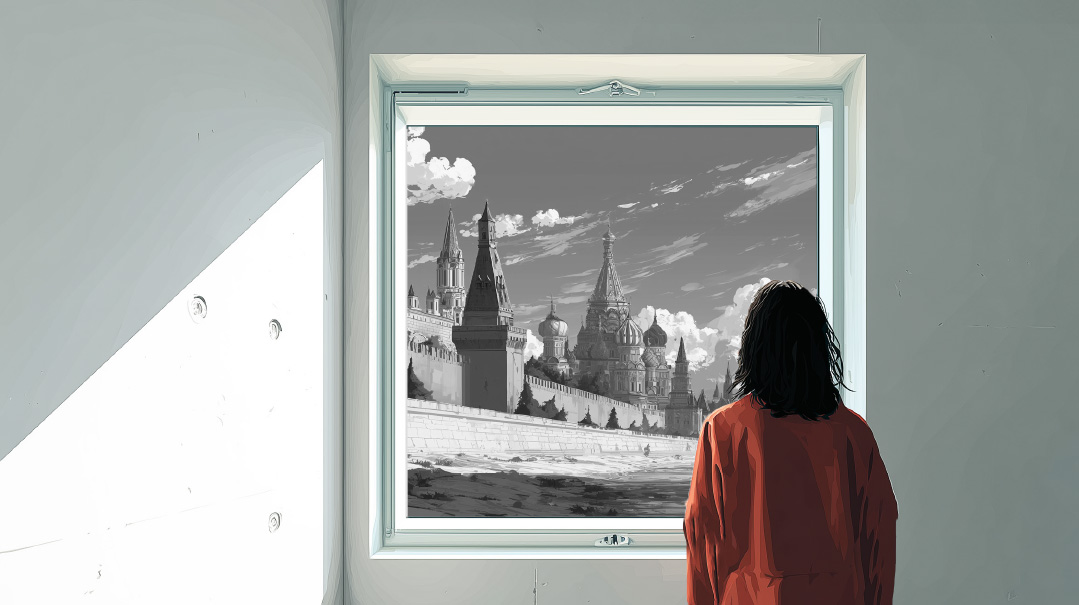Clowns for Comfort

Clowns in the lobby meant life wasn’t normal, that we were still in emergency mode. And people were tired of emergency mode

As told to Elisheva Appel by Channa Appel
IN
the Sheikh Jarrah neighborhood, just across the road from my home in Maalot Dafna, are three hotels — the Olive Tree, the Grand Court, and the Leonardo. I never saw anyone stay there except Christian tourists, but after October 7, 2,000 evacuees from Sderot and the southern kibbutzim began to call these hotels home. Among them were all types of Jews — Asheknazim, Sephardim, Ethiopians, Bnei Menashe.
I’m a medical clown, and that’s how I first showed up there, wearing my yellow Crocs and bananas on my hat, walking my invisible dog, staging finger-puppet productions, but without my usual balloons, because the bang of a popped balloon is terrifying for someone who experienced a terrorist attack.
I also visited the Theatron Hotel. That was the scariest. The families there had come from the kibbutzim that had been attacked, and the little kids were practically unresponsive. They’d been frantically silenced for hours as they huddled in their safe rooms, and had learned that shutting down their emotions and responses equaled survival.
The older kids warmed up faster. We played ball in the lobbies and horsed around. A colleague brought a pack of cute robotic puppies. They played music and did tricks, but because they repeated their tricks at predictable patterns and intervals, the kids felt safe with them and warmed up quickly.
In the beginning, it was cute to have clowns playing ball in the lobbies — until it wasn’t anymore. Clowns in the lobby meant life wasn’t normal, that we were still in emergency mode. And people were tired of emergency mode.
The thing is, I’m the type of clown who is always asking, “What else do people need?” I joined forces with an amazing assortment of volunteers and financial backers who wouldn’t want to be identified in print. Together, we brainstormed for ways we could help the evacuees.
Laundry was a problem. Since they’d arrived with only three days’ worth of clothing, and the hotels had limited capacity, the ladies of our community galvanized to wash the evacuees’ laundry. But the system wasn’t perfect, it took time, and things got lost. Rabbi Senter’s yeshivah, right nearby, installed 15 sets of washers and dryers and turned their basement into a laundromat, complete with a play area and a spa area so women and their children could relax while their cycles ran. The hotels also stepped up their games, because when you have multiple traumatized children wetting their beds at night, you need industrial machines for midnight linen changes.
As things settled down to “normal,” I saw they needed something more. People around the country were sending donations of clothing, but a huge proportion of the donations were unusable, out-of-date clothing that had been cluttering people’s bomb shelters for 40 years, until a war suddenly prompted them to clear it out. The need was especially dire for the frum residents of the Olive Court, because adhering to tzniyus limited their options even further.
We designated a room as a clothing “store” and set up tables, racks, and shelving. Although we started out soliciting gently used items, when we saw what a huge boost it was for a displaced woman to get something new, we began to source new-with-tags donations. People’s generosity raised interesting halachic sh’eilos. When we got a donation of a $400 coat, we wanted to sell it and buy warm coats for six evacuees for the same price, but we were told we couldn’t — every donation had to go to the people it was intended for, in its original form.
Likewise, we couldn’t use any of our donations for other poor people, even if their straits were more dire.
Originally, we had no idea there were teenagers among the evacuees. While the other age brackets drifted out of their rooms to socialize or just to get some fresh air, the teens huddled in their rooms, texting their friends. Many refused to go to their new schools. (Thankfully, that was less of an issue for the frum teens, because a Torah education puts such a huge emphasis on middos and kindness, these kids integrated much more easily.)
Then one of my friends had a brainstorm. She offered a door prize, a stereo system that hooks up to an iPhone, for any teen who came to a pizza party and signed in. We discovered that we had over 150 teenagers —and now we had their phone numbers. Right away we secured a budget for youth programs — art therapy, pizza parties, Tehillim sessions.
Parents needed support, too. When you live with all of your kids in one hotel room for weeks on end, how do you get any privacy? Have an adult conversation? We arranged “date night” locations, where parents could step out a bit, have cake and coffee, and just have a little breathing space for a couple of hours.
The frum families tried to use their tiny stipends to get out of hotels and rent apartments; they weren’t comfortable with the de facto socialization that happens when you have lots of kids from mixed backgrounds, both genders, hanging around bored in the same space for indefinite amounts of time.
We arrange monthly birthday parties for whoever’s birthday falls out that month. For Sivan, we had life-size checkers and Connect 4 games for the older ones, and Play-Doh and crafts for the younger kids. The Theatron Hotel, which doesn’t even have a common room, has a PlayStation on rotation, which travels to each family’s room for a couple of days.
The evacuees have learned to rely on each other, and on us. Michal was in a hotel with her family, which included a toddler and a special needs child… and then her husband got called up. Although she’d initially been one of those trying to move out to an apartment, she decided to stay put, because all the women there help each other out. So many have husbands in miluim, so they stick together and support each other with childcare whenever possible.
The residents became like families. One of the Sderot evacuees, Meir, had always wanted to be a police officer, and when he needed work in Yerushalayim, he fulfilled his dream. After the tragic stabbing of a police officer in Sheikh Jarrah, it was Meir who liquidated the terrorist. When I showed up at the hotel that day, it was like color war. “We got him!” the proud evacuees were yelling. “Sderot is the best!”
But more often, the lack of regular employment presented serious problems, not hero stories. Michal couldn’t work here in Yerushalayim, and since the hotel was providing her family’s meals, she got a lump-sum stipend of only 1,000 shekels. With that, she was expected to buy diapers, formula, and all the other things a young family needs… so we started a gemach for those essentials, too.
We don’t just help with day-to-day needs. When one of “our” boys became bar mitzvah, we organized a beautiful party for him. Someone offered her penthouse apartment, a caterer provided an elegant seudah at cost price, others arranged for hat and suits. The bar mitzvah boy was glowing.
Eventually, the government decided that occasional rocket fire didn’t pose enough of a threat to justify the long-term evacuation, and stopped funding the hotel stays, but going home wasn’t so simple. My friend Shira’s teenage daughter would begin to violently throw up whenever anyone brought up the idea of returning to the scene of her trauma.
By now, the residents of the South have mostly returned home, but there are an estimated 60,000 to 80,000 evacuees, mostly from the North, who are still far from the comforts of home. Their needs are not a cause célèbre like they were ten months ago, but even after the glamour of the volunteering has faded, I’m still here with my bananas and invisible dog, seeing how I can make people feel just a little more at home.
(Originally featured in Family First, Issue 906)
Oops! We could not locate your form.







